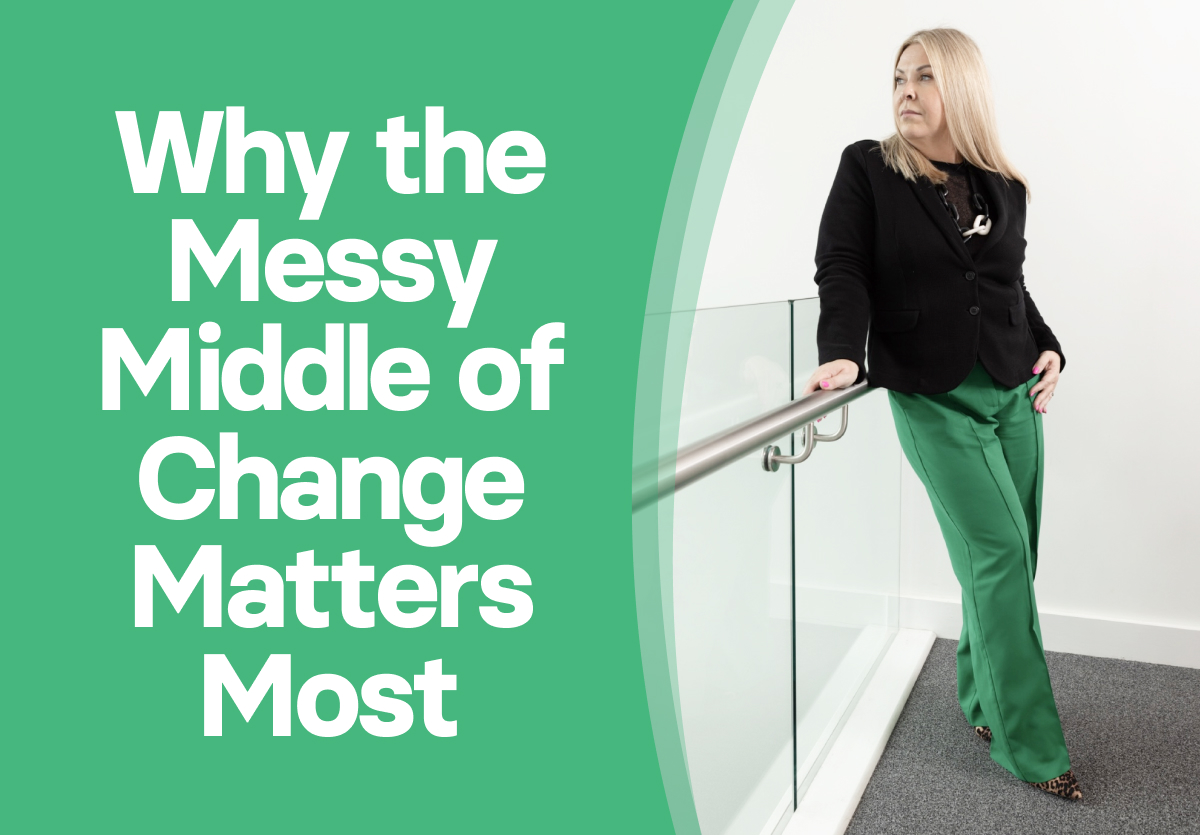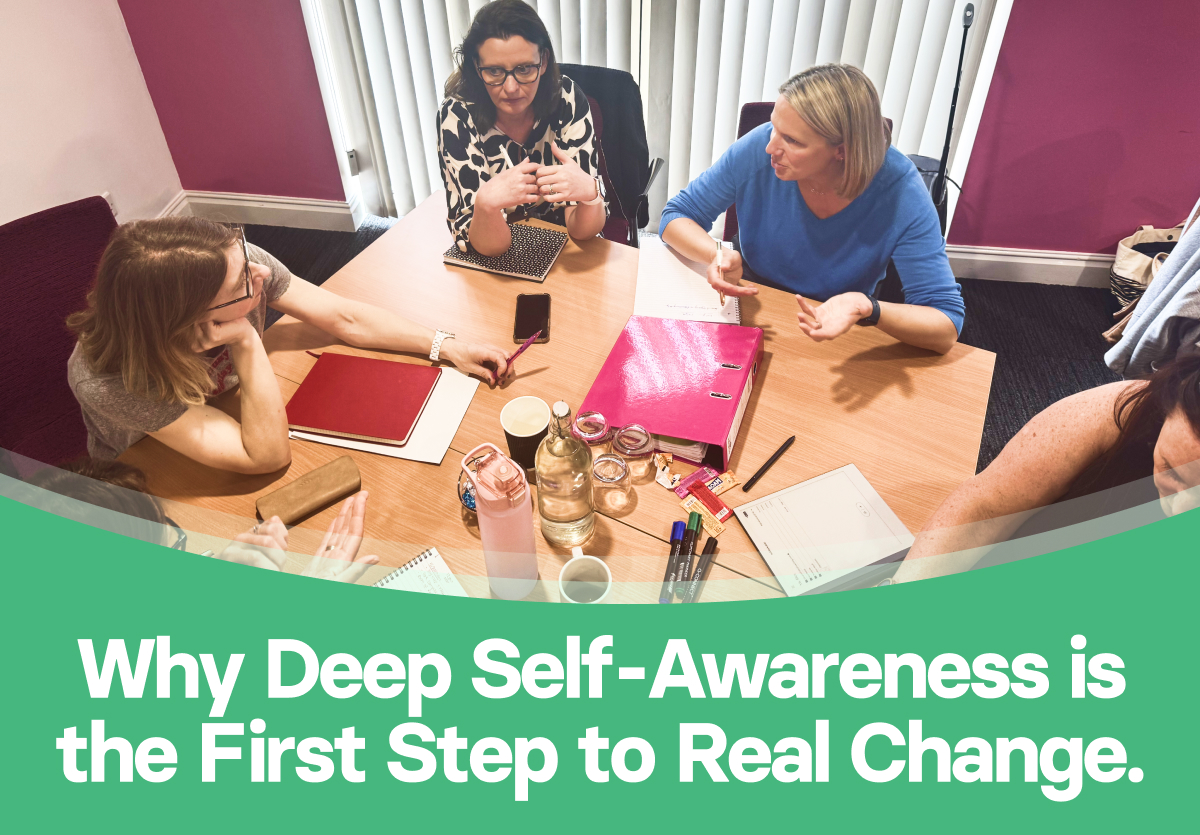‘You’re Better Than You Think You Are’ was the title I chose for my second book because most humans have a gap between how good they believe they are, and there actual potential. Some call it imposter syndrome. I call it unmanaged doubt.
On the flip side, there is also a population of people who believe they are better than their ability. There’s a name for this too. It’s called the Dunning Kruger effect. When this occurs self-awareness is low, but the person will believe they are highly self-aware.
I’ve always been fascinated in the differences between these two extremes so let’s take a closer look in this article because, as coaches, we’ll encounter clients in both camps.
Imposter syndrome and the Dunning-Kruger effect are two psychological phenomena that have become increasingly common topics of discussion in recent years. I’ve been invited to speak about imposter syndrome dozens of times.
While they may appear to be polar opposites, they are both related to the way that people perceive their own abilities and skills.
Imposter Syndrome in my view is a limiting belief response characterised by persistent feelings of doubt and inadequacy, despite evidence to the contrary. I had one client who was earning a basic salary of £400k in investment banking, travelled the world, had a wonderful partner, and a great education, and yet couldn’t see the value in any of these things because her belief system was such that she had to keep striving to prove her worth. Her self-value was connected to collecting the ticks of success, and they had to keep coming.
People with imposter syndrome report feeling like they are “faking it” and that they will be found out as frauds at any moment.
I find this belief system is typically triggered by new situations or challenges, where the person feels like they don’t have the necessary skills or knowledge to succeed. I’ve heard many a client complain about feeling like an imposter when they start a new job or get promoted.
One of the most common misconceptions about imposter syndrome is that it only affects high-achievers or people who are exceptionally talented. However, research has shown that imposter syndrome can affect anyone, regardless of their level of success or expertise. In fact, some studies have suggested that people who are more humble and self-aware are actually more likely to experience imposter syndrome.
One reason for this is that humble people are more likely to recognise their own limitations and acknowledge when they don’t have all the answers. This can create a sense of anxiety and self-doubt when faced with new challenges or situations where they feel like they are out of their depth. However, it’s important to note that imposter syndrome is not a personality trait or a disorder. It’s simply a belief system that can be changed with the right mindset and tools.
The Word “Syndrome” is misleading I feel, as imposter syndrome is not a diagnosable condition, like depression or anxiety. Instead, it’s a term that has been used to describe a common experience that many people have at some point in their lives. As coaches, the more we can normalise these responses and show clients how to overcome them, the less hold imposter syndrome will have.
It’s also worth noting that imposter syndrome is not the same thing as low self-esteem or lack of confidence. While these factors can certainly contribute to imposter syndrome, they are not the root cause. Instead, imposter syndrome is characterised by a persistent belief that one’s own abilities or accomplishments are not deserved or legitimate, regardless of evidence to the contrary.
The Dunning-Kruger Effect on the other hand is overconfidence in one’s own abilities.
In contrast to imposter syndrome, the Dunning-Kruger effect is a cognitive bias that leads people to overestimate their own abilities and knowledge.
This phenomenon is named after the psychologists who first identified it, David Dunning and Justin Kruger, who conducted a series of studies in the late 1990s.
The Dunning-Kruger effect is most commonly observed in people who are new to a particular skill or domain, as they often lack the necessary experience and knowledge to accurately assess their own competence. As a result, they may overestimate their abilities and be overly confident in their own knowledge and skills.
One classic example of the Dunning-Kruger effect is the novice driver who believes that they are an excellent driver, despite a lack of experience on the road. This overconfidence can lead them to take risks or make mistakes that a more experienced driver would recognise as dangerous.
However, it’s important to note that the Dunning-Kruger effect is not limited to novices or beginners. It can also affect experts or experienced professionals who are overconfident in their own abilities and fail to recognise their own limitations.
Coaches will see this a lot in clients who work in highly competitive environments such as professional services, investment banking and law. Masking the true self with the pretender is common and the Dunning Kruger effect is deployed as a subconscious protection measure to save face among peers. This becomes the modus operandi, humility is lost, and arrogance prevails.
Differences between Imposter Syndrome and Dunning-Kruger Effect
While imposter syndrome is characterised by feelings of self-doubt and a lack of confidence in one’s own abilities, the Dunning-Kruger effect is characterised by overconfidence and an inflated sense of self-esteem. People who exhibit the Dunning-Kruger effect often have a tendency to overestimate their abilities and knowledge, and may be resistant to feedback or criticism that challenges their beliefs. In coaching sessions this can be tricky as the client will have trouble hearing your perspective. Whilst it would be easier to adopt a non-directive style here, so the person can answer open questions, you’ll be dealing with the pretender. It’s better to take a more directive, provocative stance, and challenge the client. It will feel uncomfortable but it will help the client see the blind spot more quickly.
One important difference between these two phenomena is that the Dunning-Kruger effect is typically associated with a lack of self-awareness, while imposter syndrome is often associated with too much self-awareness. People who exhibit the Dunning-Kruger effect may be unable to accurately assess their own abilities or recognise their own limitations, while people with imposter syndrome may be hyper-aware of their own shortcomings and feel like they don’t measure up to others.
Another key difference between imposter syndrome and the Dunning-Kruger effect is the way that they impact performance. People with imposter syndrome may be hesitant to take on new challenges or opportunities because they feel like they don’t have the necessary skills or knowledge to succeed. On the other hand, people who exhibit the Dunning-Kruger effect may be more likely to take on tasks or projects that are beyond their capabilities, which can lead to poor performance or even failure.
Identifying Imposter Syndrome and the Dunning-Kruger Effect in Clients
As a coach, it’s important to be able to recognise these two phenomena in your clients, as they can have a significant impact on their performance and ability to achieve their goals. Here are a few signs that your client may be experiencing imposter syndrome:
They are hesitant to take on new challenges or opportunities because they feel like they don’t have the necessary skills or knowledge to succeed. They frequently downplay their own accomplishments or dismiss compliments from others.
They may feel like they are “faking it” or that they will be found out as frauds at any moment. They may be highly self-critical and have a tendency to focus on their own shortcomings or mistakes.
They will use the term ‘but’ a lot.
On the other hand, here are a few signs that your client may be exhibiting the Dunning-Kruger effect: They are overly confident in their own abilities and knowledge, even when they lack experience or expertise in a particular area.
They may be resistant to feedback or criticism that challenges their beliefs or suggests that they need to improve. They may take on tasks or projects that are beyond their capabilities, leading to poor performance or even failure.
They may be dismissive of others who they perceive as less knowledgeable or skilled than themselves.
If you suspect that your client is experiencing imposter syndrome or the Dunning-Kruger effect, there are a few strategies that you can use to help them overcome these beliefs and improve their performance. Here are a few tips:
For clients with imposter syndrome: Encourage them to focus on their strengths and accomplishments, rather than dwelling on their shortcomings.
Help them develop a growth mindset, where they view challenges and failures as opportunities for learning and growth. Encourage them to seek feedback and support from others, and help them develop strategies for dealing with negative self-talk.
Use Paseda360 Limitless Light Therapy to switch the limiting belief to an empowering one.
For clients with the Dunning-Kruger effect: Help them develop a more accurate assessment of their own abilities and knowledge by providing objective feedback and constructive criticism.
Encourage them to seek out opportunities for learning and growth, rather than assuming that they already know everything. Help them develop a more open-minded approach to learning and problem-solving, where they are willing to consider alternative perspectives and solutions.
* Use Paseda360 directive approach.
Conclusion
Imposter syndrome and the Dunning-Kruger effect are two psychological phenomena that can have a significant impact on performance and achievement. similar on the surface, they represent two very different mindsets and belief systems.
It’s important to note that these phenomena are not mutually exclusive – someone may experience imposter syndrome in some areas of their life and the Dunning-Kruger effect in others. Additionally, there is a wide spectrum of experiences and beliefs that fall under the umbrella of imposter syndrome and the Dunning-Kruger effect, so it’s important to approach each client with an open mind and a willingness to listen and understand their unique perspective.
Ultimately, the key to helping your clients overcome imposter syndrome or the Dunning-Kruger effect is to help them develop a more accurate and balanced view of themselves and their abilities. By encouraging them to focus on their strengths and accomplishments, seek feedback and support, and approach challenges with a growth mindset, you can help them overcome limiting beliefs and achieve their full potential.
Find out more about Paseda360 Coach Training.







